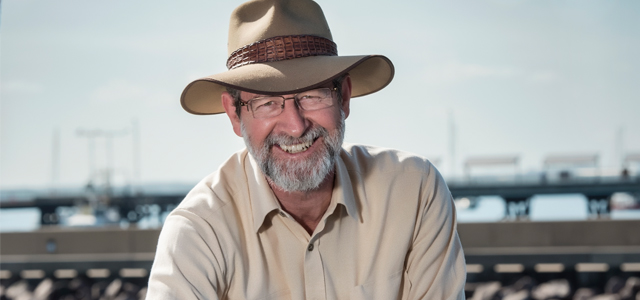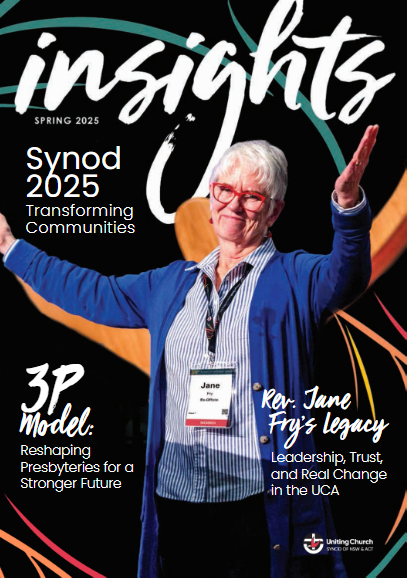One of the things ex-President Rev. Prof Andrew Dutney taught me was the value of conversations with taxi drivers. This may seem strange given all the wonderful theological thoughts he’s penned, but it has been my joy to gain insights into their different cultural perspectives.
Recently an Ethiopian taxi driver told me of the late leader of his nation who had come to power to defeat poverty. “He had no political ambition”, my new friend said. “No agenda. Simply, one thing he wanted to focus upon — to beat poverty!”
“Early in his leadership people spoke against him but he didn’t listen to them. He died with his boots on, leading by example, working alongside others to beat poverty.
“After he died, people realised more fully what a great leader he was. He led by example and taught people what they could do for themselves.”
Encourage. Comfort. Love
In the letter to the church at Philippi, Paul has some profound things to say which I relate to the conversation with my Ethiopian friend. At the beginning of a new year, his story about leadership and what Paul wrote in this passage of Scripture remind me of what’s important for the followers of Jesus. For we who have been encouraged, comforted and loved are to be encouragers, comforters and lovers of others.
“Let each of you look not to your own interests, but to the interests of others.” (Philippians 2:4)
In the account of the Ethiopian leader’s singleness of purpose, we hear of one who in the mind of many in his nation put the interest of others first. By working alongside people in the challenge of ending poverty, he encouraged and comforted his sisters and brothers in Christ.
Like Jesus (and through him), we are united in our struggles and sufferings. Also, we are united in love.
The Australian summer has already been devastating with the tragic consequences of fires in several states and recent flooding. As a Christian community, we are one with those who have suffered loss. Our compassion is expressed through the support of chaplains, the disaster relief fund aising, and the many local communities who comfort, encourage and love in very real and practical ways.
In our thoughts and prayers, we hold the individuals, families and communities, along with emergency and relief workers, and volunteers.
Aching with those who suffer
Paul speaks of a need for “tenderness and compassion” and the Greek language gives for me a literal picture of an ache in the gut for those who are suffering. As I did in my installation sermon, I point again to our tenderness and compassion for those seeking refuge from trauma and conflict. We ache for those in detention. Particularly, we continue to call for an end to children being held in detention, and for Nauru and Manus to be closed.
Our hearts go out to, and we pray for, the little girl who was recently reported as being sexually abused on Nauru. We think to of her family. With a growing number of people and politicians, we again ask how the Australian Government can justify its inhumane treatment of vulnerable and traumatised sisters and brothers.
Lift others up
Each of us is called firstly to have a relationship with our sisters and brothers in Christ. This communion in the Spirit is a common sharing that is true community. In humility, we are to value sisters and brothers above ourselves. This “above” is the surpassing wealth of knowing Christ at work in us (Philippians 3:8) and it affords the peace of God that transcends all understanding (Philippians 4:7).
“…in humility regard others as better than yourselves”. (Philippians 2:3)
Humility, real humility is not about putting yourself down. It’s about lifting others up.
My dear friends, in humility let us, the community of Christ, share with our wider communities the love of God, valuing others above ourselves.
The question to be asked is: “Are our eyes on our own interests or, as they should be, on the interests of others?”
Markupmirri,
Stuart McMillan, President, Uniting Church in Australia
[Markupmirri means deep affection — love, as with a brother or sister — in the Yolŋu languages of NE Arnhemland.]







